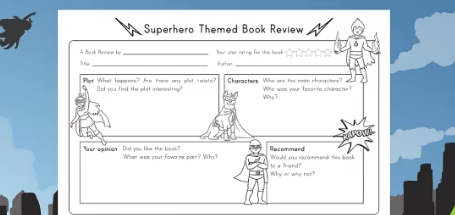Books are timeless vessels of knowledge, emotion, and imagination. From the enduring works of the classics to the innovative voices of contemporary literature, Book reviews serve as a vital bridge, connecting readers to the rich tapestry of written words. Whether exploring the profound depths of Tolstoy or the vibrant narratives of Chimamanda Ngozi Adichie, book reviews provide critical insights and foster a deeper appreciation of literature’s diverse spectrum. This article delves into the world of book reviews, examining their importance, the distinct approaches to reviewing classics versus contemporary works, and how they help us navigate the ever-evolving literary landscape.
The Importance of Book Reviews
Book reviews are essential for several reasons:
- Guidance for Readers: With countless books vying for attention, reviews help readers discern which books are worth their time. They highlight notable works and offer critical perspectives that aid in making informed choices.
- Critical Engagement: Reviews provide a space for critical engagement with a text. They analyze and interpret themes, styles, and contexts, offering readers a deeper understanding of a book’s significance.
- Literary Discourse: Reviews contribute to the broader literary conversation, fostering discussion and debate within the reading community. They help maintain the vibrancy of literary culture by continually reassessing and reinterpreting works.
- Authorial Feedback: Reviews offer valuable feedback for authors. Positive reviews can boost an author’s visibility and credibility, while constructive criticism can guide future writing endeavors.
Reviewing the Classics
Classics are works that have stood the test of time, often forming the bedrock of literary education and culture. Reviewing classics involves a distinct set of considerations:
- Historical Context: Classics are deeply embedded in their historical and cultural contexts. Reviews of classic literature must consider the period in which a work was written, exploring how its themes and perspectives reflect or challenge contemporary societal norms.
- Enduring Themes: One of the hallmarks of classic literature is its exploration of universal themes that resonate across generations. Reviews should examine how these themes are presented and why they continue to be relevant today.
- Literary Influence: Many classic works have significantly influenced subsequent literature. A good review will trace these influences, discussing how a classic has shaped literary traditions and inspired other writers.
- Modern Relevance: Although classics are products of their time, they often address issues and ideas that remain pertinent. Reviews should explore how these works speak to modern readers and what insights they offer into today’s world.
For example, a review of Jane Austen’s “Pride and Prejudice” might delve into its critique of class and gender roles in early 19th-century England while also discussing its enduring appeal and relevance to contemporary discussions about social status and relationships.
Reviewing Contemporary Literature
Contemporary literature reflects the complexities and concerns of the present day. Reviews of modern works require a different approach:
- Current Context: Contemporary books are products of today’s world. Reviews should consider the current social, political, and cultural contexts that shape these works, examining how they engage with contemporary issues.
- Innovative Styles: Modern authors often experiment with new narrative techniques and styles. Reviews should assess these innovations, discussing how they contribute to or detract from the work’s overall impact.
- Diverse Voices: Today’s literature is marked by a diversity of voices and perspectives. Reviews should highlight this diversity, considering how different backgrounds and experiences inform the narratives and themes of contemporary works.
- Immediate Impact: Unlike classics, contemporary works have an immediate impact on current readers. Reviews should gauge the initial reception of a book, discussing how it resonates with or challenges current societal norms and reader expectations.
For instance, a review of Angie Thomas’s “The Hate U Give” would focus on its portrayal of systemic racism and police brutality in America, its impact on contemporary young adult readers, and its contribution to the ongoing dialogue about racial justice.
Balancing Objectivity and Subjectivity
Whether reviewing classics or contemporary literature, striking a balance between objectivity and subjectivity is crucial:
- Objective Analysis: A good review provides a balanced assessment, examining the book’s structure, style, themes, and character development. It should offer a fair critique, recognizing both strengths and weaknesses.
- Subjective Reflection: Personal responses to a book add depth to a review. Sharing how a book affected you personally can make the review more engaging and relatable. However, it’s essential to distinguish between personal opinions and objective analysis.
For example, while objectively analyzing the narrative structure of Gabriel García Márquez’s “One Hundred Years of Solitude,” a reviewer might also share their subjective experience of being transported by its magical realism and richly woven family saga.
The Role of Book Reviews in Literary Discovery
Book reviews play a crucial role in literary discovery, especially in today’s vast and varied book market:
- Discovering New Authors: Reviews can introduce readers to new and emerging authors who might otherwise go unnoticed. Highlighting debut works and lesser-known voices enriches the literary landscape.
- Revisiting Forgotten Gems: Reviews can also shine a light on forgotten or overlooked books, encouraging readers to rediscover works that deserve renewed attention.
- Expanding Horizons: By exposing readers to different genres, cultures, and perspectives, reviews help broaden their literary horizons. They encourage readers to step out of their comfort zones and explore diverse narratives.
For example, a review might bring attention to Yaa Gyasi’s “Homegoing,” highlighting its exploration of African and African-American history through interconnected stories, thus encouraging readers to delve into a richly layered narrative they might not have encountered otherwise.
The Evolution of Book Reviews in the Digital Age
The digital age has transformed the way we engage with book reviews, making them more accessible and diverse:
- Online Platforms: Websites like Goodreads and Amazon have democratized book reviews, allowing readers from around the world to share their opinions and recommendations. These platforms create a dynamic, interactive space for literary discussion.
- Social Media: Book communities on social media platforms like Instagram (#bookstagram), YouTube (BookTube), and Twitter (#booktwitter) have flourished. These communities share reviews, host book clubs, and foster discussions, making the review process more engaging and immediate.
- Blogs and Podcasts: Independent book bloggers and podcasters offer in-depth reviews and discussions, often focusing on niche genres or specific literary themes. These formats allow for more personalized and detailed analysis.
- Digital Magazines and Journals: Many traditional literary journals and magazines have embraced digital formats, expanding their reach and allowing for multimedia content, such as video reviews and author interviews.
The Future of Book Reviews
As technology continues to evolve, so too will the landscape of Book reviews. Here are some trends and possibilities for the future:
- Interactive Reviews: Future reviews may become more interactive, incorporating multimedia elements such as video clips, audio excerpts, and interactive graphics. This could provide a richer, more immersive experience for readers.
- AI and Personalized Recommendations: Advances in artificial intelligence could lead to more sophisticated recommendation algorithms, offering readers highly personalized book suggestions based on their reading history and preferences.
- Collaborative Reviews: The rise of social media and online communities could lead to more collaborative review processes, where multiple reviewers contribute to a single, comprehensive review. This would offer a more balanced and nuanced perspective.
- Enhanced Accessibility: Efforts to make reviews more accessible to a wider audience, including those with disabilities, could include features like audio reviews, text-to-speech options, and more inclusive language.
Conclusion
Book reviews are invaluable tools for navigating the vast world of literature, from the timeless classics to the cutting-edge contemporary. They provide critical insights, foster discussions, and help readers make informed decisions about what to read next. As the digital age continues to reshape the literary landscape, the role of book reviews will only grow in importance, offering ever more diverse and dynamic ways to engage with the written word.
Whether you are an avid reader seeking your next literary adventure, an author looking for feedback, or simply someone who enjoys the rich tapestry of literature, book reviews offer a wealth of information and inspiration. They invite us to explore the depths of classic works and the vibrant voices of contemporary literature, enriching our reading experiences and broadening our literary horizons. Through the art of the book review, we gain not only a greater appreciation for individual works but also a deeper understanding of the literary world as a whole.




